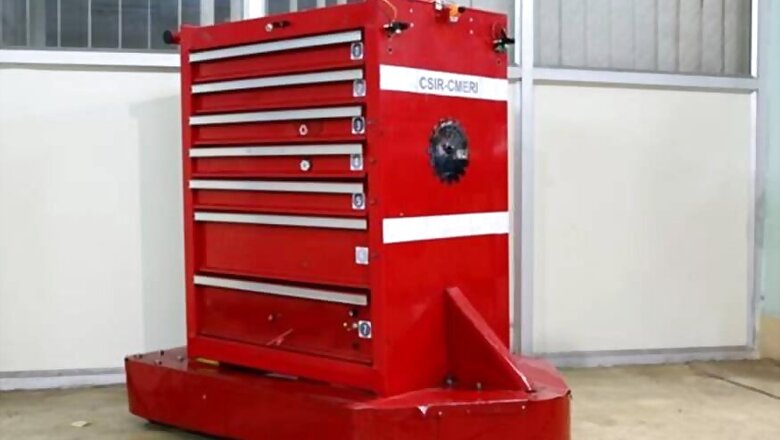
views
A group of Indian scientists at the Central Medical Engineering Research Institute (CMERI) have created an automated robot that is squarely targeted at helping frontline healthcare workers avoid contact points while treating Covid-19 patients. The robot is called the 'Hospital Care Assistive Robotic Device' (HCARD), and offers features such as automated or controlled navigation, handling of drawers to disburse medicines and food to patients, collecting medical samples and even communicating via an audio-visual interface.
According to Prof Harish Hirani, director of the CMERI lab run by the Council of Scientific and Industrial Research (CSIR), the robot itself weighs less than 80kg, and can be built at a total cost of less than Rs 5 lac. Factors such as these will likely help in the development and eventual deployment of HCARD, which may help doctors and healthcare workers maintain a minimum distance as mandated by the World Health Organisation, as far as possible.
The CSIR-CMERI lab has further stated that research work is being expedited in areas such as production of personal protective equipment (PPE) kits, along with other tools such as a contactless hospital waste management system, road sanitisation services, low-cost mechanical ventilators and more. With such projects at hand, research wings in the country will be looking to help ramp up India's fight against Covid-19.


















Comments
0 comment